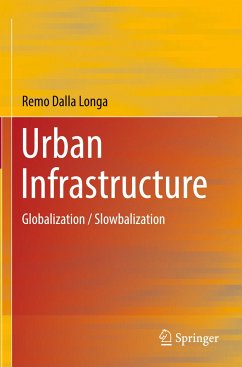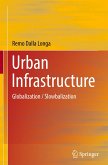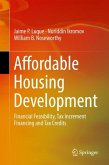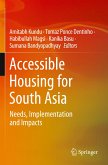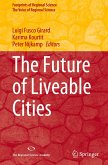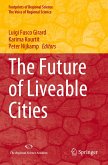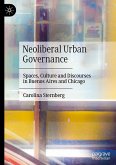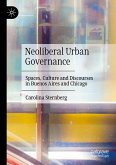The book deals with the concept of urban infrastructure and the strong evolution of globalization, in particular the driving force taken by global cities. Urban infrastructure is a constituent part of the global cities, both have a synergistic evolution. The main reference is to western global cities in the intertwining of financialization, settling and brownfield which is a little different from the urbanization of other global cities of other non- developed countries, or emerging countries. There is therefore a significant link between globalization and urban infrastructure. The occurrence of slowbalization can have consequences on urban areas infrastructures and more generally on the different dichotomy between global city and nation. With the pandemic infectious and the post COVID, there is already a different configuration between the global city and the rest of the national territory. A driving element of the urban infrastructure and the global city has been the financializationand identification of assets within global cities. Urban infrastructure as an asset has grown considerably in the last two decades, in the wake of what has already been highlighted previously for real estate. There are contiguous issues that affect the concept of urban infrastructures and they are the enormous growth of finance and the landings of this in the great cities of the world with investments that first involved Real Estate and then urban infrastructures. There has also been a technological revolution that has merged the ubiquitous technological infrastructure with other more traditional components of the infrastructure, even apparently recent themes, such as smart cities, come from this evolutionary trend and merge with urban infrastructures. The theme of smart cities, if properly interpreted, gives strength to the concept of urban infrastructure.
Bitte wählen Sie Ihr Anliegen aus.
Rechnungen
Retourenschein anfordern
Bestellstatus
Storno

